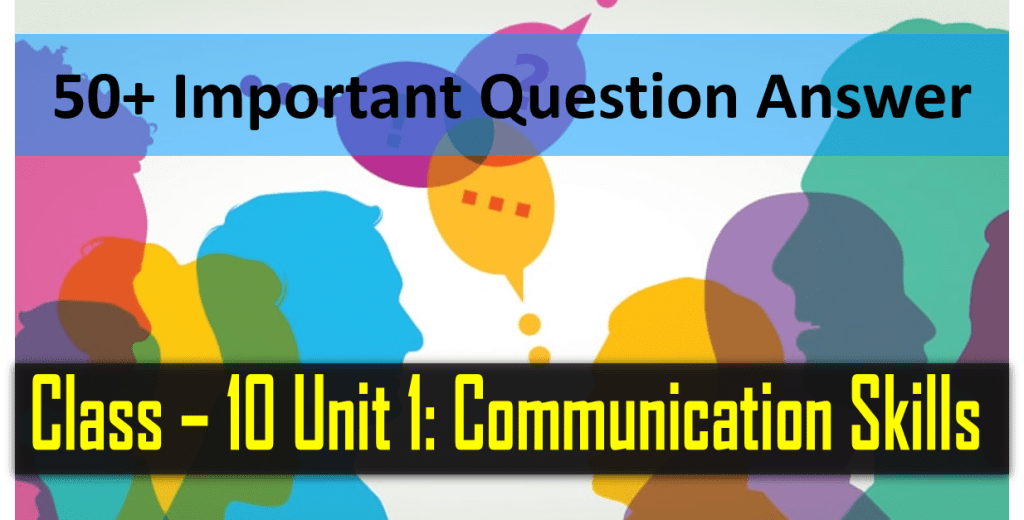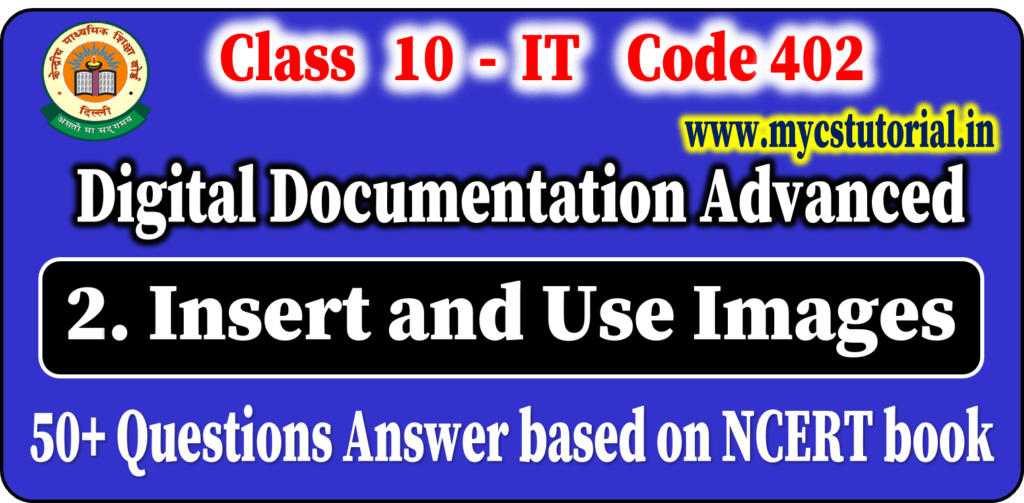PART – A: Unit 2:- Self Management Skills – II 50+ Question – Answer
Session 1: Stress Management
1. What do you mean by Self Management?
Answer: Managing oneself in order to achieve desired goals and targets is called self-management.
To practice Self Management, a person needs to deal with willpower, determination, and a positive outlook.
2. What a person needs to deal for practicing Self Management?
Answer: To practice Self Management, a person needs to deal with willpower, determination, and a positive outlook.
3. What is Stress?
Answer: Stress is our body and mind’s response and reaction to challenging or handling situations in our lives.
It is our body’s way of reacting and getting prepared to deal with a situation and pressure is created.
4. How many types of Stress?
Answer: There are two types of Stress : (a) Eustress and (b) distress
5. What is eustress?
Answer: Good or positive stress is known as Eustress. Eustress is identified by excitement, elation, and charging up of emotions.
Examples of Eustress: Promotion, Winning a Match, Passing an exam, Meeting an old friend, buying new possession, receiving a surprise gift, getting a new job, etc.
6. What is distress?
Answer: Negative types of stress are known as distress. It can be dangerous if not identified in time.
Examples of distress: Higher expectations at work, close deadlines, insecurity of job, internal team conflicts, lack of conflicts, etc.
7. What is Good stress?
Answer: Good stress refers to the limited quantity of stress that helps one keep focused and motivated to do something. For example, You have scored good marks in your exam. This stress is good because it motivates you to do more and planned study.
It is also known as eustress by psychologists. For example, riding a roller coaster in an adventure park, the deadline for assignment submission in approaching, going for an interview, etc.
8. What is Bad stress?
Answer: Bad stress refers is a negative form of stress and it hinders your progress. It is also known as distress or chronic stress.
Bad stress can affect body’s immune system and causes emotional distress.
Symptoms of bad stress are:- lack of sleep, heart problem, loss or gain of appetite, memory loss, etc.
9. What is the difference between eustress and distress?
Answer: Eustress is positive stress, also called Good stress. But distress is negative stress, also called Bad stress.
10. Why do you need to manage stress?
Answer: Because it will start taking a toll on one’s body.
11. What is the impact of unmanaged stress?
Answer: Unmanaged stress may affect the immune system, digestive system, and excretory systems of the body.
Unmanaged stress is a significant risk, and thus, one must always take timely actions to manage their stress levels whenever they feel that stress has become negative and overwhelming.
12. List some common symptoms of physical stress?
Answer: Headache, Muscular tension, Fatigue, Chest pain, Upset stomach, Disturbed sleep, and Low energy.
13. List some common symptoms of psychological stress?
Answer: Anxiety, Feeling demotivated, Lost of attention, Depression and frustration, Angry outbursts, Drug and alcohol abuse, Social withdrawal, Overreaction.
14. What are the benefits of Stress management? or
Why Stress management is so important?[Sumita Arora]
Answer: Benefits of stress management are –
- maintaining health
- improving mood
- boosting immune system
- improving productivity
- This leads to burst of physical strength, which is vital for reaching the goal
- Complete mental and physical engagement for task accomplishment
- Increases efficiency and effectiveness
- Prevents psychological disorders and behavioral problems
15. What are the different stress management techniques?
Answer: Stress management techniques are –
a) Physical exercise –
b) Yoga
c) Sports
d) Meditation
e) Taking Break
f) Nature walks
g) Holidaying and Vacationing
16. Why students are facing stress?
Answer: Students may face stress due to
- Social factors
- Peer – pressure, Balancing academic life with social life, increased unrealistic wants, etc.
- Academic factors
- the pressure of work, deadlines, exam pressure, parents’ expectation, own expectations, increased workload, etc.
- Other factors
- The financial problem, etc.
17. How students can manage stress? or
What are some stress management tips for students?
Answer: Students can manage and control their stress levels by –
- Proper Time Management
- Physical exercise
- Act Smartly
- Spend a relaxing time
- Take a good diet
- Positive thinking
18. What foods should you consume when feeling stressed?
Answer: Warm drinks, whole grains, dark chocolates, fatty fish, milk, nuts, vitamin C-rich fruits, water, bananas, leafy greens, etc.
PART – A : Unit 2 :- Self Management Skills – II 50+ Question – Answer
19. What foods should you avoid when feeling stressed?
Answer: Refined sugar, sugar foods, caffeine, junk food, cookies, , fast food, candies, etc.
20. What are Cortisol and Adrenaline?
Answer: Cortisol and Adrenaline are stress hormones, which are released from our body where there are increased stress levels.
21. Write the name of the feel-good hormones released by our body.
Answer: Endorphins (released in the brain), Dopamine, and Serotonin (released by the body)
22. How does stress affect working women?
Answer: Stress for working women is more. A working woman has so many stress like taking care of children, working at home, working at an office, and many more.
Balancing relations, friends and work causes a great deal of stress.
23. What do you mean by Internal Stress?
Answer: Stress occurs due to Anxiety, fear of financial loss, unrealistic or irrelevant expectations, worries related to future happening, etc., called Internal stress.
Internal stress is very dangerous, as it grows up inside and slowly.
24. What is the fight-flight-freeze response?
Answer: In emergency situations (earthquake, accident, or life-threatening situation), our nervous system instantly kicks into action
fight (face) – fight means face. Our nervous system instructs us to face situations.
flight (defense) – flight means defense of himself/herself from bad conditions.
freeze (surrender) – In freeze response, the body is unable to respond for a certain duration until the danger passes.
Information Technology / Informatics Practices / Computer Science
- Class 10 Information Technology Code 402 Question Paper 2024 Download Paper with Solution
- Class 10 Information Technology 402 CBSE Previous Year Question Bank and SQP
- Class 10 Information Technology 402 – Video Tutorial
- Class 10 IT Code 402 Electronic Spreadsheet Advanced Session 2 – Link Data and Spreadsheets Question Answer
- Class 10 IT 402 Unit 1 – Digital Documentation Advanced Session 5: Implement Mail Merge and Printing Labels Question and Answer
- Class 10 IT 402 Practical Activity for Practical File
- Class 10 IT 402 Unit 1 – Digital Documentation Advanced Session 4: Create and Customize Table of Contents Question and Answer
- Class 10 IT 402 Unit 1 – Digital Documentation Advanced Session 3: Create and Use Template Question and Answer
- Class 10 IT 402 Unit 1 – Digital Documentation Advanced Session 2: Insert and Use Images 50+ Que Ans
- Class 10 IT Code 402 Term 2 Board Question Paper Answer key
- Class 10 Information Technology Code 402 Notes – A Quick Revision
- Class 10 IT Code 402 NCERT Exercise Solution Information Technology
- Class 10 Info Tech 402 Unit 3 RDBMS Database Management System Notes Download PDF
- 20+ Sample Papers for Term 2 examination with Answer key for class 10 info tech 402
- Class 10 Info Tech Unit 3 RDBMS Session 4 – Retrieve Data Using Query 50+ Question Answer









